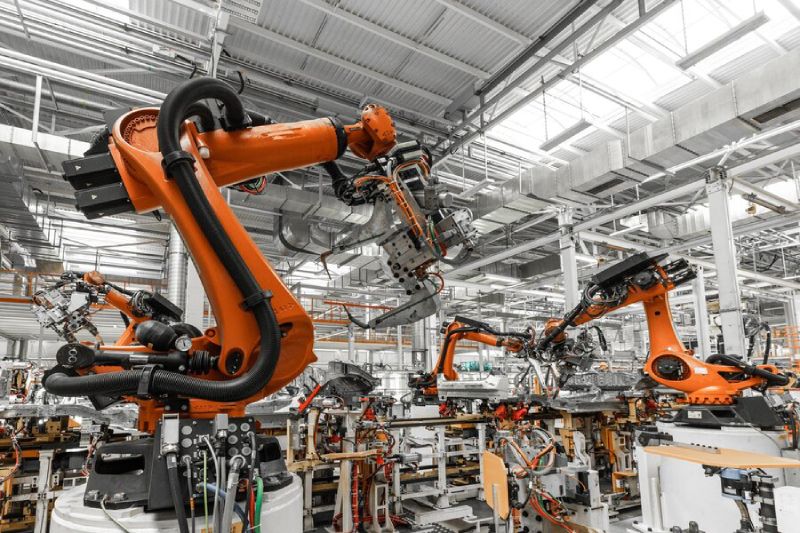In the grand tapestry of modern industry, automation emerges as a compelling force, propelling enterprises into a future of efficiency, innovation, and unprecedented growth. The quest for enhanced productivity and sustainability drives the core of industrial automation, with SCADA (Supervisory Control and Data Acquisition) playing a pivotal role in this transformative journey. As we stand on the cusp of a new era, the insights from SCADA integrators— the architects of control systems, beckon a narrative of profound evolution. Their expertise and vision underpin the trajectory towards a digitally integrated, resilient, and environmentally conscious industrial landscape.
1. Embracing the Evolution: SCADA Integrator’s Role
In an era where industrial automation is evolving rapidly, the role of a SCADA integrator has become pivotal. They are the torchbearers in unifying disparate systems within an automation environment, ensuring seamless operation and data flow. A control system integrator goes beyond traditional approaches, bringing a wealth of knowledge and technology to modernize operational procedures. The blend of SCADA (Supervisory Control and Data Acquisition) with integrative techniques opens a horizon of possibilities, ensuring a robust, flexible, and future-proof industrial automation infrastructure.
2. Expanding Connectivity: Bridging the Industrial IoT Gap
The proliferation of Industrial IoT (IIoT) is a game-changer, providing a pathway for SCADA integrators to bridge the gaps between legacy systems and modern automation requirements. The amalgamation of IIoT with SCADA not only enhances connectivity but empowers industries with real-time data acquisition and analytics. A controls integrator, with a knack for innovating, harnesses the power of IIoT to boost operational efficiency, ensure asset optimization, and pave the way for predictive maintenance – a milestone towards Industry 4.0.
3. Cloud Integration: The Sky’s the Limit
Cloud computing is no longer a buzzword but a reality that’s reshaping the industrial automation landscape. SCADA integrators are at the helm, steering industries towards cloud-based solutions. The incorporation of cloud services with SCADA systems offers a paradigm shift, allowing for remote monitoring, control, and analysis like never before. This synergy also heralds an era of cost-effectiveness, scalability, and enhanced security, making industrial operations more resilient and adaptable to changing market dynamics.
4. Cybersecurity: Fortifying Industrial Fortresses
With great connectivity comes great responsibility, especially in the realm of cybersecurity. SCADA integrators are evolving, adopting robust cybersecurity measures to shield industrial automation infrastructures from looming threats. A comprehensive, multi-layered security approach is indispensable to ensure the integrity and confidentiality of sensitive operational data. As controls integrators, the onus of fostering a culture of cybersecurity while facilitating technological advancements is imperative.
5. Data Analytics: Unveiling the Power of Information
Data is the new oil, and SCADA integrators are the new refineries. Harnessing the deluge of data flowing through industrial channels, and converting it into actionable insights is a feat that SCADA integrators are mastering. Through sophisticated data analytics, industries can unlock the potential of real-time data, enabling smarter decision-making, optimizing operations, and uncovering new avenues for growth. It’s a narrative of continuous improvement and innovation, driven by data-centric methodologies.
6. Training and Adaptability: Nurturing a Tech-Savvy Workforce
The future beckons for a workforce that’s in sync with the technological advancements spearheaded by SCADA and controls integrators. It’s crucial to nurture a culture of continuous learning and adaptability among employees to keep pace with evolving industrial automation landscapes. The human aspect is as vital as the technological one, and investing in training programs and workshops facilitated by experienced SCADA integrators can bridge the knowledge gap, fostering a harmonious blend of man and machine.
7. Sustainability: Driving Eco-Friendly Industrial Practices
Sustainability is not just a trend but a necessity in today’s global industrial framework. SCADA integrators play a crucial role in driving eco-friendly practices by optimizing energy usage, reducing waste, and ensuring compliance with environmental standards. By crafting a sustainable automation blueprint, industries can achieve a harmonious balance between operational excellence and environmental responsibility, setting a precedent for a greener industrial future. The interplay of SCADA and control integration is the cornerstone of modern industrial automation. With a future poised for technological breakthroughs, the insights from SCADA integrators are invaluable in navigating the path towards a smart, sustainable, and secure industrial ecosystem.
